The street food that silences even the most heated debate
- Published
Why is this street food a great social leveller?
Jhaal muri is the king of street food snacks in Kolkata (Calcutta).
It has been called "the great leveller" for good reason - as you will discover.
Jhaal muri walas - the guys who make this delectable dish - really stand out.
Their stalls are loaded with sacks and bowls full of all sorts of delicious ingredients and right in the centre will be a large stainless steel bowl - that's where the action happens.

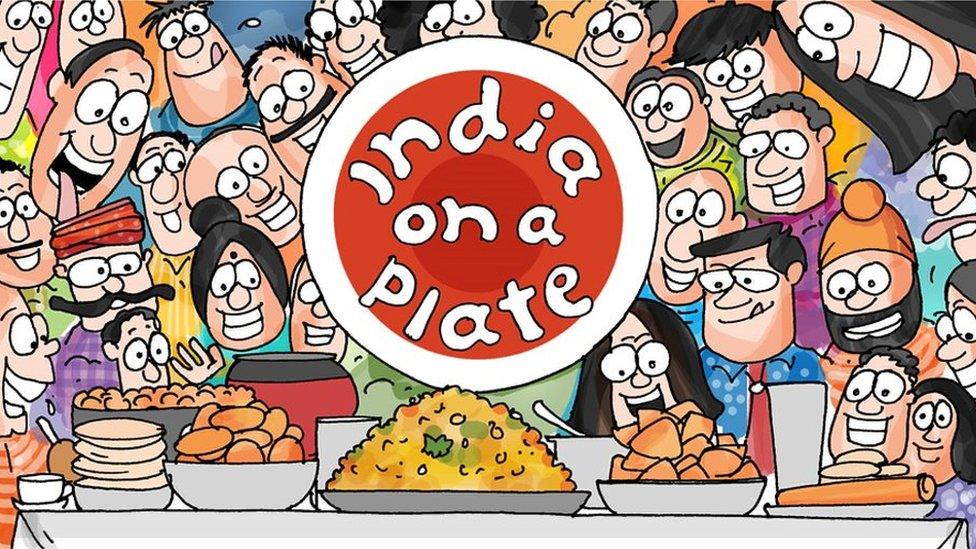
This is the ninth article in a BBC series India on a plate, on the diversity and vibrancy of Indian food. Other stories in the series:
How home chefs are helping uncover India's food secrets
Amma canteen: Where a meal costs only seven cents
The street food bringing theatre to your plate

Jhaal means spicy and muri means puffed rice but the dish is much, much more than just rice crispies with a sprinkle of chilli powder.
In fact, rice crispies aren't even the only breakfast cereal that goes into this savoury snack.
As always with street food the actual recipe depends on the maestro that's preparing the dish, but you should expect that the couple of handfuls of muri that is tossed into that shiny bowl will be joined by roasted peanuts, chickpeas and lentils as well as a sprinkle of makka poha - that's Hindi for corn flakes - and sometimes sev - fried vermicelli.
To that will be added all sorts of other fresh and cooked titbits.
There will be chopped tomato, cucumber, chilli, coriander, coconut and onion as well as a sprinkle of boiled potato.
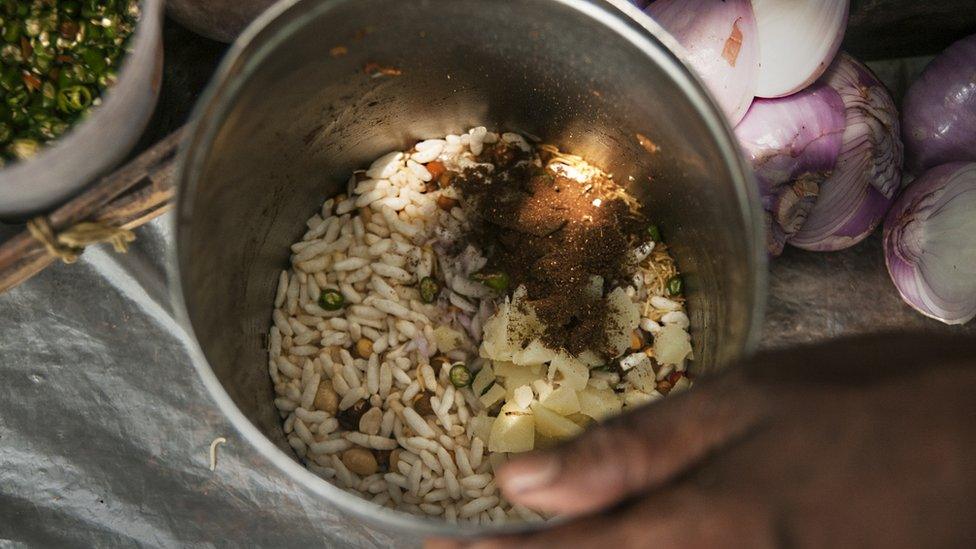
Jhaal means spicy and muri means puffed rice but the dish is much, much more than just rice crispies with a sprinkle of chilli powder.
Those who have never tasted jhaal muri are probably thinking this sounds like culinary chaos, but withhold judgement for a moment.
Because next comes the ingredient that brings this dish together - jhaal, the spicy paste.
This will always contain chilli, but there will be much else in there besides.
There will be salt certainly, and garam masala - the ubiquitous north Indian blend of spices that can include cumin cardamom, nutmeg, mace, bay leaves, cloves, pepper and more.
Some jhaal muri walas even add amchoor, powdered dry mango, to give the paste an acid edge.
A scoop of this goes into the bowl along with a squeeze of lime and a squirt of that most Bengali of ingredients, mustard oil.
Then the whole lot gets a good mixing.
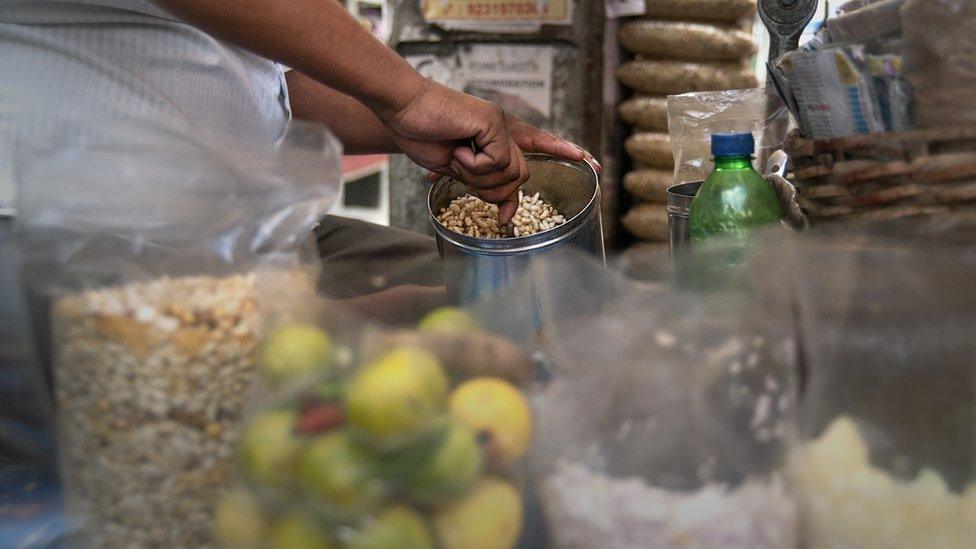
The stainless steel bowl is where all the action happens
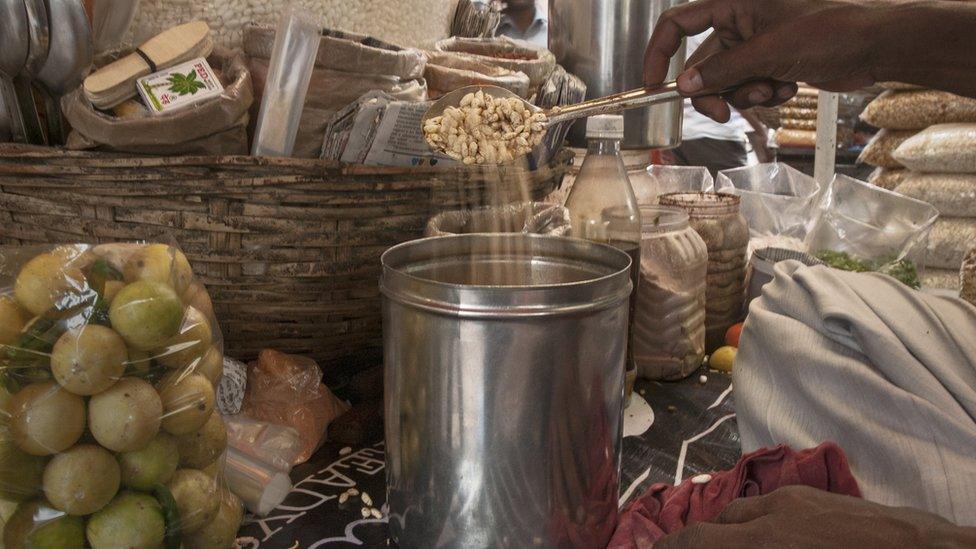
That jhaal muri is delicious is something that all Bengalis can agree on
The best street foods should have more than a little theatre about them, so this is the opportunity for any jhaal muri wala worth his salt to show off a bit.
Expect to see some exaggerated scooping and tossing as the master ensures that everything is evenly mixed together.
The finished dish will then be shaken into a packet made - like the British fish and chip wrappers of old - out of sheets of old newspaper.
Now you are ready to dig in.
And this is the moment you will learn why its properties as a "leveller" are so celebrated.
Kolkata is the capital of the eastern state of West Bengal and Bengalis are famous as the ultimate exponents of one of the defining Indian traditions - debate and discussion.
A Nobel Prize-winning Indian economist and proud Bengali, Amartya Sen's most successful books is a celebration of his countrymen's disputatious nature and is called simply "The Argumentative Indian".
Yet share a packet of jhaal muri amongst even the most quarrelsome of Bengalis and you'll have a very un-Indian experience: silence.
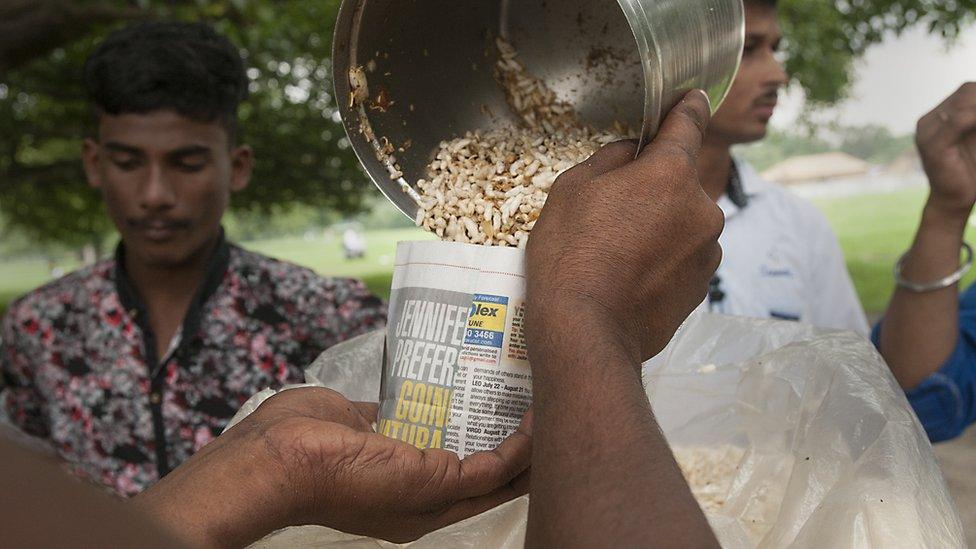
The finished dish will then be shaken into a packet made - like the British fish and chip wrappers of old - out of sheets of old newspaper
That's because they'll be munching down this spicy, crunchy wonder as quickly as they can.
That jhaal muri is delicious is something that all Bengalis can agree on.
Buy a packet of the stuff from one of the many jhaal muri stalls in the city's famous Maidan - the vast park in the centre of this magnificent city - and just watch the customers as you eat.
You will see besuited businessmen step out of sleek limousines to join the queue alongside the city's poorest residents.
The great leveller indeed!
If there is an Indian street food you think Justin needs to taste, contact him @BBCJustinR